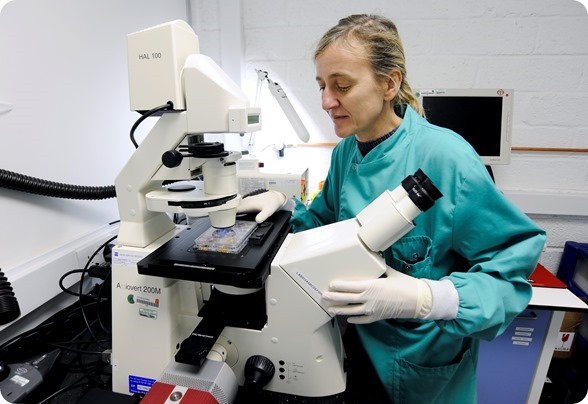Immunocore Limited, the Oxford-based biotechnology company developing novel biological drugs to treat cancer and viral disease, announced that its most advanced ImmTAC drug, IMCgp100 for the treatment of late stage melanoma, has reached Maximum Tolerated Dose (MTD) and the dose escalation part of this Phase I clinical study has been completed. The company has now initiated a Phase IIa clinical trial in the UK and USA.
%20killing%20tumour%20cell%20(yellow)_thumb.jpg)
T cell (grey) killing a tumour cell (yellow)
Immunocore’s Phase I dose escalation study in 31 patients with late stage malignant melanoma was designed to evaluate the safety of IMCgp100 and to establish a tolerable dose. Dose dependent toxicity has been demonstrated and the MTD established as 600 ng/kg.
Data from the Phase I trial indicate promising early signs of efficacy. Immunocore has now initiated a Phase IIa study to optimize the dosing regimen and maximise the efficacy of IMCgp100.

Immunocore laboratory – a scientist examines cells
James Noble, Chief Executive Officer of Immunocore, commented: “We are extremely pleased to have reached the MTD for our lead programme, IMCgp100 in melanoma, which will now enter the next phase of development. This is a very encouraging result for the company, and confirms the potential power of our unique technology platform.”
Earlier this year, Immunocore entered into two major research and licensing agreements with leading pharmaceutical companies Genentech and GlaxoSmithKline for the discovery and development of multiple novel targets using its ImmTAC technology.
Further details of the clinical trial are available at www.clinicaltrials.gov, under trial identifier number NCT01211262.